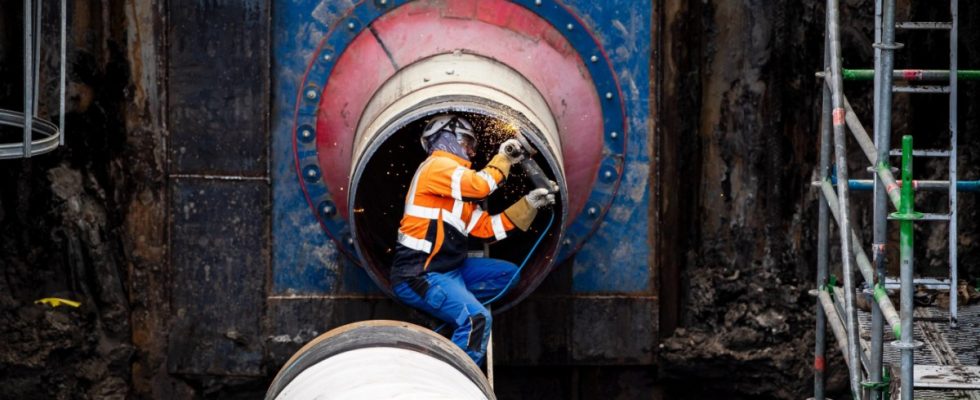Building something new is sometimes much easier than getting rid of the old – something the country has been experiencing for some time now when it comes to shutting down old power plants. How can that be when millions of gas heaters are due, along with the associated infrastructure?
In one “Green Paper” The Federal Ministry of Economics has now tried to go through some very practical questions. The answers are far from simple, and many of them are not popular. But the ministry has known all too well for almost exactly a year that things get complicated as soon as they lead into German boiler rooms – that’s when the first drafts of the heating law were made public and there was a huge outcry. Although the law was later weakened, its goal remains the phase-out of fossil fuels such as oil and gas. And that’s where the open questions begin.
What happens, for example, if many households along a street that was previously supplied with gas make use of public funding and install rows of heat pumps? The number of people still connected to the gas network would shrink, as would gas transport. But the costs of the gas network are currently borne by customers. The smaller their number, the higher the costs for each individual gas customer. “Without countermeasures, there would be very sharp increases in network fees for gas network operations,” warns the paper from the Ministry of Economics. “But the goal must be to ensure an affordable, economically viable and secure energy supply even in the transition phase.” So a different distribution of costs might be needed. The Federal Network Agency has to worry about this.
What happens if parts of the existing infrastructure do not serve anyone?
This leads to the next problem: If a network only supplies a handful of customers, when will they also be disconnected? Municipal utilities are already only obliged to connect gas customers for as long as this is economically reasonable for them. But if customers say goodbye, the business becomes increasingly uneconomical. The paper from the ministry therefore requires “sufficiently long planning for the required transformation”. Customers would need enough time to prepare for this. “Surprising shutdowns” should be “avoided,” it is said.
However, gas networks in Germany are awarded by municipalities through concessions. This should enable competition for their operation. But how attractive are they for municipal utilities and others if fewer and fewer households use them? New depreciation rules are intended to make it easier to earn money on investments in a timely manner. Nevertheless, it cannot be ruled out that no one will bid for a concession anymore. But this, the ministry paper warns, “raises the question of maintaining the gas supply in the affected municipality”. No concessionaire, no gas. There would therefore need to be a way to oblige the existing concessionaire to continue operating. But there is still no law for this.
But if parts of the current infrastructure do not supply anyone – what then? It can be assumed that the length of the gas distribution networks will decrease significantly from the current 500,000 km. Do they then have to be dismantled? Or stay to transport hydrogen one day? The ministry obviously does not consider the latter to be the solution. Because of the high costs and scarcity of hydrogen, it is “not likely” that households will heat with it on a large scale – which, of course, is not what everyone in the coalition sees. People are confident about the progress in hydrogen, says FDP parliamentary group deputy Lukas Köhler. “Hydrogen will therefore probably not be the champagne of the energy transition, but rather a central component of our energy supply.” There is no reason for the large-scale shutdown of gas networks.
But if it does, it wouldn’t be a big deal, says the Ministry of Economics. A rapid dismantling would not be absolutely necessary. All that would be needed is a law that allows the “toleration” of the pipes. Buried as they are, they don’t bother anyone.

